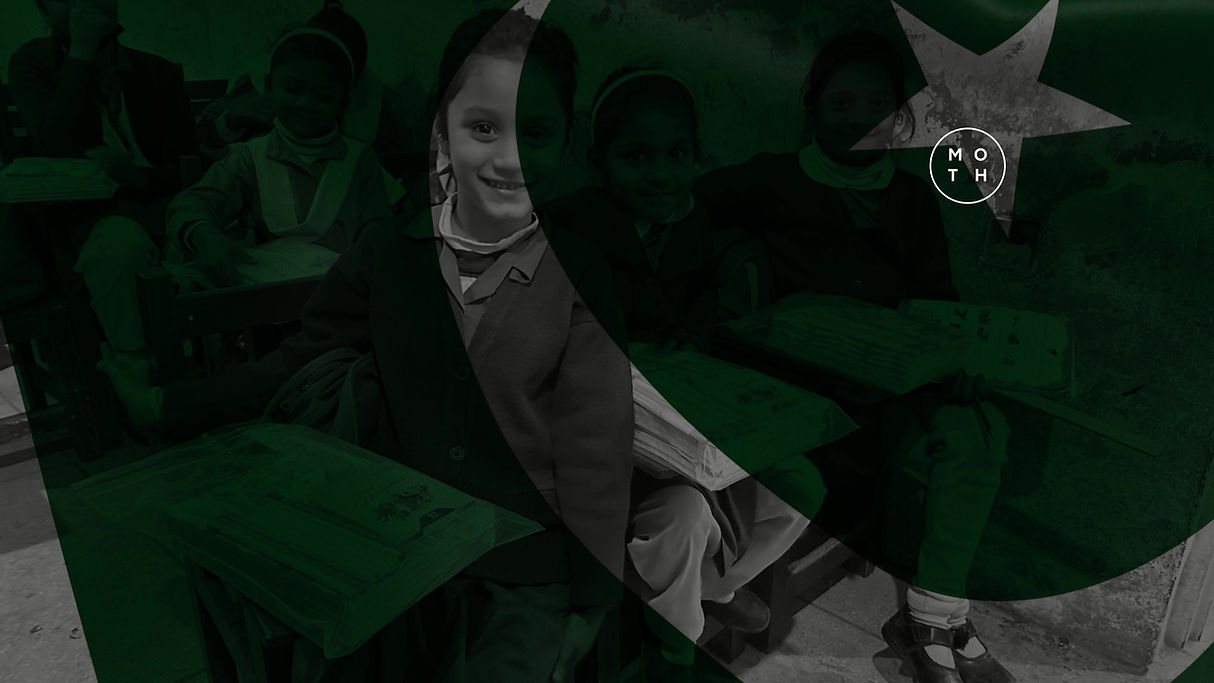WHY WE ARE HERE
AN EDUCATION CRISIS IN PAKISTAN
23 MILLION
Out-of-School Children
Pakistan has the world’s second-highest number of out-of-school children (OOSC) with an estimated 23 million children aged 5-16 not attending school, representing 44% of the total population in this age group.
And the situation is only getting worse: the OOSC number is expected to surpass 26 million in 2025.

WHAT WE'RE DOING ABOUT IT
EMPOWERING YOUTH THROUGH MUSIC
We know underprivileged students who participate in arts programs are 78% more likely to stay in school, have better academic outcomes, and demonstrate pro-social behavior.
Music of the Heart promotes equitable access to quality education and fosters academic engagement through music, supporting the Government of Pakistan’s mission to significantly reduce the number of out-of-school children at both the primary and secondary levels.
میوزک آف دی ہارٹ تعلیمی ترقی نو تیز کرن تے لہور دے 12 سکولاں اچ معیاری تعلیم دی منصفانہ توسیع نو یقینی بنان تے مرکوز اے، جہڑا خود نو حکومت پاکستان دی پرائمری تے سیکنڈری سکولاں دی سطح تے سکول توں باہر دے بچیاں دی شرح نو نمایاں طور تے گھٹ کرن دی کوششاں دے نال جوڑدا اے۔
Recognizing that socio-cultural barriers combined with economic factors drive education deprivation for children in Lahore, particularly for those belonging to minority groups, Opus 1 Foundation is partnering with the Pakistan-based NGO, Education and Life Foundation, to ensure Music of the Heart is inclusive and equally accessible to girls & boy of all backgrounds.
اس گل نو تسلیم کردے ہوئے کہ معاشی عوامل دے نال مل کے سماجی تے ثقافتی رکاوٹاں لاہور چ بچیاں لئی تعلیم دی محرومی پیدا کردیاں نیں، خاص طور تے اقلیتی گروہاں نال تعلق رکھن آلے لوکاں لئی، اوپس ون فاؤنڈیشن پاکستان چ قائم این جی او، ایجوکیشن اینڈ لائف فاؤنڈیشن دے نال شراکت داری کر رہیا اے، تاکہ ایہ یقینی بنایا جا سکے کہ میوزک آف دی ہارٹ ہر پس منظر دیاں کڑیاں تے منڈیاں لئی جامع تے برابر قابل رسائی۔
A daily program where effective communication and mutual appreciation for one another is taught and encouraged, Music of the Heart not only keeps more kids in school and boosts academic performance, but helps dissolve socio-cultural biases and carves a path towards a more unified society.
اک روزانہ پروگرام جتھے موثر مواصلات تے اک دوجے لئی باہمی تعریف سکھائی جاندی اے تے حوصلہ افزائی کیتی جاندی اے، دل دی موسیقی نہ صرف زیادہ بچیاں نو سکول چ رکھدی اے تے تعلیمی کارکردگی نو ودھاندی اے، بلکہ سماجی تے ثقافتی تعصبات نو ختم کرن چ مدد کردی اے تے اک زیادہ متحدہ معاشرے دی طرف راہ بناندی اے۔
WHAT WE'RE AIMING FOR
GOALS + OBJECTIVES
1
INCREASE
DAILY
SCHOOL
ATTENDANCE
2
IMPROVE
ACADEMIC
PERFORMANCE
3
CREATE
INCLUSIVE
LEARNING
ENVIRONMENTS
4
SUPPORT
STUDENT
MENTAL
HEALTH




HOW MUSIC MAKES A DIFFERENCE
OUTCOMES + IMPACT
In many underserved communities, especially those facing poverty and social instability, traditional school systems often struggle to engage students and prevent dropout. But we've seen something remarkable happen when you introduce music.
In Kenya, the Ghetto Classics program has shown us what’s possible. The integration of music into children's lives has led to outcomes that far surpass the local norms.
93%
LITERACY RATE
3X higher than the surrounding community average of just 36%.
+78%
SCHOOL
ATTENDENCE
Students are not just enrolled, but eager to show up, learn, and belong.
80%+
Breaking cycles of poverty and opening doors that would otherwise remain closed.
GRADUATION
RATE
90%
Reflecting music’s power to foster emotional growth and resilience by Year 3.
HIGHER
CONFINDENCE






